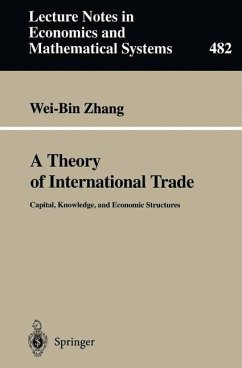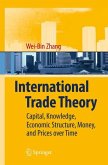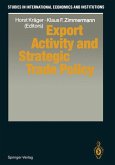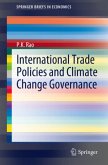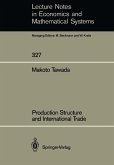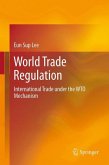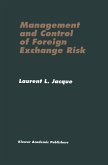This book is concerned with dynamic relations between international division of labor, division of consumption and determination of prices structure within a perfectly competitive framework in global economy. Our analytical framework examines the issues related to trade which are raised in the traditional trade theories. It also provides insights into the issues related to interdependence between knowledge creation and utilization and international trade examined by the new trade theory. The comparative advantage of our theory is that in providing rich insights into the complex of international trade it only uses a few concepts and simplified functional forms and accepts few assumptions about behavior of consumers, producers and institutional structures.
Over more than two centuries the development ofeconomic theory has created a wide array of different concepts, theories, and insights. My recent book Capital and Knowledge (Zhang, 1999a) shows how separate economic theories such as the Marxian economics, the Keynesian economics, the general equilibrium theory, and the neoclassical growth theory can be examined within a single theoretical framework. The Capital and Knowledge constructs an economic theory to account for the phenomena explained by the main economic theories (of national economies) in a unified manner. It tries to draw together the disparate branches of economics into a single organized system ofknowledge. This book is a part of my economic theory with endogenous population, capital, knowledge, preferences, sexual division of labor and consumption, institutions, economic structures and exchange values over time and space (Zhang, 1996a). As an extension of the Capital and Knowledge, which is focused on the dynamics ofnational economies, this book is to construct a theory of international trade. We are concerned with dynamic relations between international division of labor, division of consumption and determination of prices structure in global economy. We examine dynamic interdependence between capital accumulation, knowledge creation and utilization, economic growth, price structures and international trade patterns under free competition. Our theory is constructed on the basis of a few concepts within a compact framework.
Over more than two centuries the development ofeconomic theory has created a wide array of different concepts, theories, and insights. My recent book Capital and Knowledge (Zhang, 1999a) shows how separate economic theories such as the Marxian economics, the Keynesian economics, the general equilibrium theory, and the neoclassical growth theory can be examined within a single theoretical framework. The Capital and Knowledge constructs an economic theory to account for the phenomena explained by the main economic theories (of national economies) in a unified manner. It tries to draw together the disparate branches of economics into a single organized system ofknowledge. This book is a part of my economic theory with endogenous population, capital, knowledge, preferences, sexual division of labor and consumption, institutions, economic structures and exchange values over time and space (Zhang, 1996a). As an extension of the Capital and Knowledge, which is focused on the dynamics ofnational economies, this book is to construct a theory of international trade. We are concerned with dynamic relations between international division of labor, division of consumption and determination of prices structure in global economy. We examine dynamic interdependence between capital accumulation, knowledge creation and utilization, economic growth, price structures and international trade patterns under free competition. Our theory is constructed on the basis of a few concepts within a compact framework.

